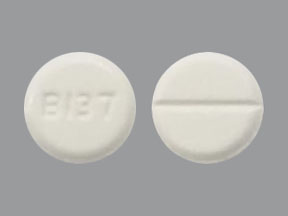
Cyproheptadine Coupons & Savings Card – Discount Prices from $8.17
Cyproheptadine is a first-generation antihistamine used to alleviate allergy symptoms such as sneezing, a runny or stuffy nose, and itchy eyes or skin. It works by blocking histamine, a chemical released during allergic reactions, thereby helping to ease these symptoms. Besides treating year-round and seasonal allergies, it is also used for non-allergic nasal symptoms (vasomotor rhinitis), eye allergies, mild skin allergies, and as an additional treatment for severe allergic reactions (anaphylaxis). Cyproheptadine is usually taken orally, 2 to 3 times a day. Common side effects may include drowsiness and dizziness. This medication should not be used in newborn or premature infants. Always consult with your healthcare provider before starting any new medication.
Our coupons are free to use. Before paying, show the pharmacist your Cyproheptadine savings card to get your free discount. Use our filters below to edit the prescription box to match your needs. The Cyproheptadine prices will update based on your prescription needs. Above our Cyproheptadine coupons, you can change your location to see pharmacy prices and costs in other areas. We're here to help you buy Cyproheptadine at the lowest price with our prescription discount card.
My prescription
Edit
4MG, Cyproheptadine (60 Tablets)
Select pharmacy

CVS
$20.77
COUPON PRICE
Walmart
$8.17
COUPON PRICE
Walgreens
$13.03
COUPON PRICE
Albertsons
$18.94
COUPON PRICECyproheptadine savings card
Show this card to your pharmacist
Walmart
$8.17
BIN
ID
PCN
GRP
019876
LH7721B494
CHIPPO
LHX
Powered by
Cyproheptadine is a first-generation antihistamine used to alleviate allergy symptoms such as sneezing, a runny or stuffy nose, and itchy eyes or skin. It works by blocking histamine, a chemical released during allergic reactions, thereby helping to ease these symptoms. Besides treating year-round and seasonal allergies, it is also used for non-allergic nasal symptoms (vasomotor rhinitis), eye allergies, mild skin allergies, and as an additional treatment for severe allergic reactions (anaphylaxis). Cyproheptadine is usually taken orally, 2 to 3 times a day. Common side effects may include drowsiness and dizziness. This medication should not be used in newborn or premature infants. Always consult with your healthcare provider before starting any new medication.
Our coupons are free to use. Before paying, show the pharmacist your Cyproheptadine savings card to get your free discount. Use our filters below to edit the prescription box to match your needs. The Cyproheptadine prices will update based on your prescription needs. Above our Cyproheptadine coupons, you can change your location to see pharmacy prices and costs in other areas. We're here to help you buy Cyproheptadine at the lowest price with our prescription discount card.
Related antihistamines prescriptions
coupons from$62.02Save 69%
coupons from$63.90Save 60%
coupons from$7.09Save 78%
coupons from$25.47Save 45%
coupons from$31.81Save 42%
coupons from$210.60Save 94%
coupons from$15.55Save 16%
coupons from$15.48Save 15%
More prescriptions for skin allergy
coupons from$43.03Save 74%
coupons from$233.60Save 74%
coupons from$1.01Save 95%
coupons from$617.96Save 73%
coupons from$1499.11Save 72%
coupons from$1.01Save 94%
coupons from$34.62Save 91%
coupons from$144.46Save 56%
Related antihistamines prescriptions
Epinastine Save 69%coupons from $62.02
Cetirizine Save 60%coupons from $63.90
Zzzquil Save 78%coupons from $7.09
Azelastine Save 45%coupons from $25.47
Olopatadine Save 42%coupons from $31.81
Ryvent Save 94%coupons from $210.60
Alaway Save 16%coupons from $15.55
Vistaril Save 15%coupons from $15.48
More prescriptions for skin allergy
Fluocinonide Save 74%coupons from $43.03
Eletone Save 74%coupons from $233.60
Phenergan Save 95%coupons from $1.01
Apexicon E Save 73%coupons from $617.96
Atopaderm Save 72%coupons from $1499.11
Dexamethasone Sod Phos +rfid Save 94%coupons from $1.01
Diflorasone Save 91%coupons from $34.62
Clemastine Save 56%coupons from $144.46
Cyproheptadine dosage forms
Use our Cyproheptadine 4MG coupon with prices from $8.17 for 60 Tablets. You can also use our Cyproheptadine 4MG coupon with prices from $2.59 for 1 Tablet. We have a Cyproheptadine 4MG coupon with prices from $4.20 for 18 Tablets. You can use our Cyproheptadine 4MG coupon with prices from $5.34 for 30 Tablets.
Dosage Quantity Price from Per unit 4MG 60 Tablets $8.17 $0.14 4MG 1 Tablet $2.59 $2.59 4MG 18 Tablets $4.20 $0.23 4MG 30 Tablets $5.34 $0.18 4MG 50 Tablets $7.23 $0.14 4MG 90 Tablets $17.51 $0.20 4MG 100 Tablets $18.46 $0.18 4MG 120 Tablets $20.35 $0.17 4MG 180 Tablets $26.82 $0.15 4MG 240 Tablets $30.76 $0.13
| Dosage | Quantity | Price from | Per unit |
|---|---|---|---|
| 4MG | 60 Tablets | $8.17 | $0.14 |
| 4MG | 1 Tablet | $2.59 | $2.59 |
| 4MG | 18 Tablets | $4.20 | $0.23 |
| 4MG | 30 Tablets | $5.34 | $0.18 |
| 4MG | 50 Tablets | $7.23 | $0.14 |
| 4MG | 90 Tablets | $17.51 | $0.20 |
| 4MG | 100 Tablets | $18.46 | $0.18 |
| 4MG | 120 Tablets | $20.35 | $0.17 |
| 4MG | 180 Tablets | $26.82 | $0.15 |
| 4MG | 240 Tablets | $30.76 | $0.13 |
| 4MG | 270 Tablets | $32.73 | $0.12 |
| 4MG | 360 Tablets | $38.64 | $0.11 |
| 4MG | 500 Tablets | $46.90 | $0.09 |
| 4MG | 1000 Tablets | $67.50 | $0.07 |
